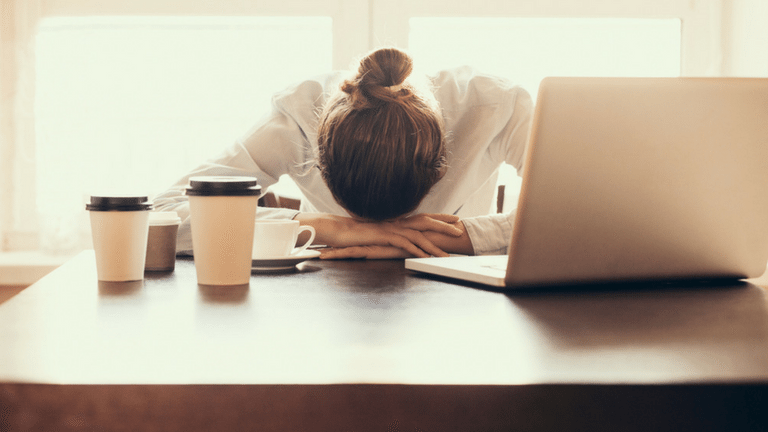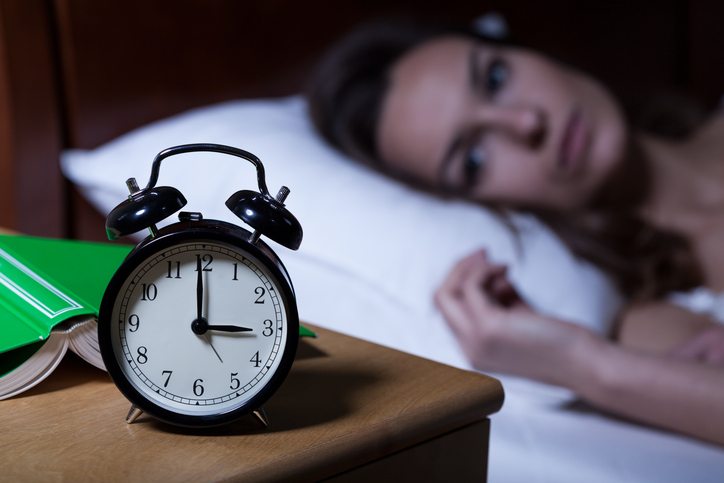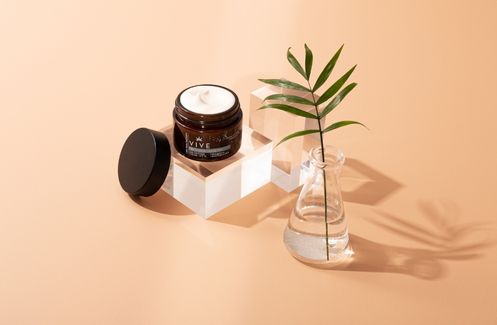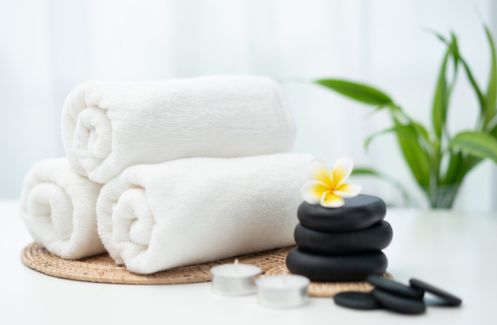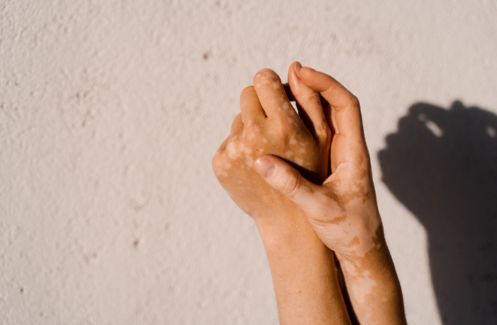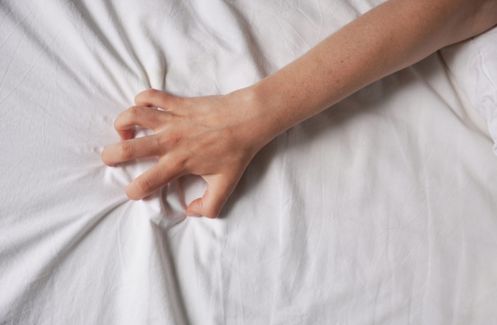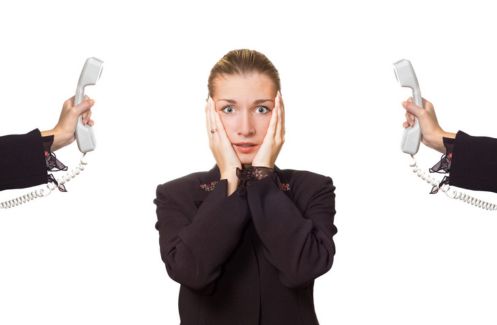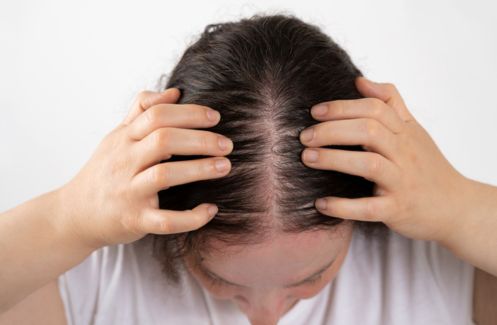Healthista Expert Therapist, Sally Brown, answers our reader’s question about whether she is having a breakdown. Sally gives her eight signs that you are having a nervous breakdown that no one should ignore
Dear Sally,
When my boss left six months ago, I was promoted to her role, but because there is a recruitment freeze, I am still expected to do my old job while also managing the department. I’ve always been conscientious so I’m working regular 12 hour days but still feel like I’m failing. The worst thing is that I work in social care with a vulnerable client group so constantly worry about letting them down. I used to be a healthy eater but now I live on sugar during the day and wine in the evenings. But I’m still so wound up by the time I get to bed that I lie awake for hours.
My partner has been supportive but we are rowing all the time, and we never have sex. I used to have a great social life but now I keep cancelling nights out with friends. The last few times I have gone out I’ve ended up either sitting in silence all evening, or drinking too much and crying hysterically. Last week I had what I think was a panic attack in the supermarket – I was trying to choose a breakfast cereal and it suddenly felt like an impossible task. Now I’m worried it will happen again. I keep fantasising about just walking out and disappearing. Am I having a breakdown?
Lucy, 32, Birmingham
Sally’s Advice:
‘Breakdown’ is a tricky term as it doesn’t come with a handy official definition. Mental health professionals tend to associate it with psychotic episodes, or when someone’s behaviour is out of character or a danger to themselves (Brittany Spears shaving off all her hair, or Stephen Fry walking out of his West End play and Tori Spelling admitting ‘it’s too hard juggling work, five kids and Dean!’).
At the other end of the scale, it’s a phrase that’s used to describe any minor crisis – ‘The traffic was so bad I felt like I was having a breakdown’. But even though it’s a less-than-ideal label, it can be a useful short-hand to describe the severity of someone’s stress, anxiety or depression.
If you are looking for a label, I’d suggest you’re suffering from burnout rather than a breakdown.
But are you having a breakdown? At the moment, you’re still in the ‘functioning’ zone – you’re going into work and interacting socially, albeit less than you used to. You’re not at ‘can’t get out of bed’ stage, but you could be heading there. If you are looking for a label, I’d suggest you’re suffering from burnout rather than a breakdown. But you’re standing on a precipice and could easily spiral down to rock bottom. Don’t expect to suddenly wake up one day feeling better.
Every day you tolerate this situation undermines your mental wellbeing. My advice is to see your GP, get signed off work for at least a couple of weeks (your clients may be temporarily affected but you would soon be no help to them at all if nothing change).
Every day you tolerate this situation undermines your mental wellbeing.
Then find yourself a good counsellor. Here are eight reasons why:
1) You’re having escape fantasies
We all have an inbuilt element of emotional resilience that helps us survive trauma and periods of anxiety and depression. Your fantasies about running away are part of this innate defence system – the oldest part of your brain, the limbic system, knows that your current situation is a threat to your wellbeing, so it’s sending you messages to escape from it. The more evolved part of your brain, the pre-frontal cortex, counters these instinctual impulses with logic and thoughts such as, ‘I must carry on, I can’t give in, if I just try harder I will keep on top of it.’ But if you see your only options as ‘run away’ or ‘put up with this misery’, you have fallen into black-and-white thinking, a classic sign of anxiety and depression.
It may not feel like it right now, but crisis situations like this one can force us to challenge unhelpful beliefs about who we are and how we live our lives.
There are other options which are probably obvious to everyone except you. The most important one is asking for help and being honest about your state of mind. You’ve tried handling this on your own and it’s not working, so it’s time to get the support you need at work.
Your fantasies about running away are part of this innate defence system
2) You have no downtime
Anxiety has an accumulative effect, like water dripping into a glass – if you don’t empty it regularly, it’ll overflow, so it’s important to take time every day to relax and unwind properly. Just 20 minutes of mindful breathing exercises done throughout the day can reduce anxiety and lower levels of the stress hormone cortisol in just five days, according to one study. Try using a mindfulness app like Headspace or Calm.com. When you’re in the grip of anxiety or depression, it’s hard to accept that simply sitting calmly and breathing will make a difference. But trust me, do it for just a few minutes, several times a day, every day, and it will change the way your brain functions, and have a knock-on effect on your body’s physiology.
3) You struggle to make decisions
Difficulty making decisions, even minor ones like which breakfast cereal to buy, can be one of the earliest warning signs that all is not well with your mental health. Ditto feeling overwhelmed by every day tasks. It’s often a symptom of cortisol overload, and can go hand-in-hand with lack of focus and concentration. Underlying these feelings is often a fear of getting it wrong, a symptom that you’re operating in a constant state of self-doubt, questioning your ability to do even the simplest things.
You may also have a sense of being judged on your actions, by loved ones and strangers, and feel an underlying sense of shame at not being able to cope. While you’re in this state, it’s essential to be kind to yourself. Instead of thinking, ‘I’m such a mess, why can’t I cope?’ think, ‘What can I do to make my life as easy as possible right now?’ You need some extreme self-care right now. Start by delegating as much of your work and home life tasks as you can. When you’re someone who is used to being self-sufficient, asking for help can be hard. But you will be surprised at how many people are only too happy to step up when you ask them.
Difficulty making decisions, even minor ones like which breakfast cereal to buy, can be one of the earliest warning signs that all is not well with your mental health.
4) You’re withdrawing socially
The instinct to isolate yourself when you’re feeling overwhelmed is a logical one. When your brain is in overload mode, you shy away from further stimulation, or anything that feels like effort. But it’s also a catch-22 situation, as lack of social support will make your depression and anxiety worse, leaving you feeling isolated and alone. Add the double whammy of lack of libido and you also miss out on the intimacy and emotional connection you usually get through sex.
Withdrawing from those who love and care about you is possibly the single-most undermining thing you can do when you’re struggling. When you’re in this frame of mind, you see everything with a negative filter, so getting another person’s perspective on your situation is vital. Try to ‘think it through’ on your own and you’ll end up ruminating and catastrophising. It’s hard, but it’s so important to keep the communication channels open. Don’t cancel seeing friends because you think you’ll be ‘boring’ or bring down the mood. See them and be honest about your state of mind. Good friends will be glad you’ve opened up.
5) You can’t sleep
Sleep disturbances are a classic sign of depression and anxiety and they’re a particularly toxic symptom. The body metabolises stress hormones while you sleep, so when you don’t sleep properly, you don’t ‘reset’ your stress levels every day, which means it takes very little to tip you into the stress-overload or panic zone. Worrying about not sleeping adds another layer of anxiety, so remind yourself that we can function on a lot less sleep than we think. Standard advice for sleep problems used to be prioritising a wind-down routine and creating bedtime rituals, but the latest thinking is that the more fuss we make about sleep, the more elusive it becomes.
moderate (not intense) exercise is your best weapon, both in helping your body process the stress hormones and releasing calming neurotransmitters like serotonin and dopamine
But one thing we do know is that moderate (not intense) exercise is your best weapon, both in helping your body process the stress hormones and releasing calming neurotransmitters like serotonin and dopamine. Right now, exercise probably feels like the last thing you need, so you may have to introduce it by stealth, walking part of the way to work, for example, or going for a walk in your lunch-hour. When you feel like you’re at crisis point, a solution as simple as walking in the park can seem laughable, but a study by Mind found that 71 per cent of people reported decreased feelings of anxiety and depression after a 30-minute walk in a green environment.
71 per cent of people reported decreased feelings of anxiety and depression after a 30-minute walk in a green environment
It’s so easy to lose touch with your body and ‘live in your head’ when you’re dealing with ongoing stress, but looking after your physical health is one of the most effective ways to improve your mental health. Intense exercise is not what you need right now as it floods your body with cortisol and adrenaline and you’re already pumping out enough. Yoga is a better choice, but if getting to a class is too much, start with mindful stretching. Nadia Narain, yoga teacher to Kate Moss and Rachel Weisz, has a great DVD called Beginners Meditation & Mindful Stretching with Nadia Narain (Newshoot). She guides you through breathing exercises, five minute meditations, and short stretching routines designed to release tension in your body. There’s also an eight-minute guided Savasanna which would be perfect to do before bed.
6) You’re having panic attacks
When anxiety is left untreated, it can trigger panic attacks, overwhelming feelings of fear and danger that seem to come out of the blue. Once you’ve had an attack, worry about having another one can be more undermining to mental wellbeing than the attacks themselves. Managing your breathing is vital to managing panic. When we’re anxious, we expel more carbon dioxide than we produce, which triggers a temporary change in the pH level of the blood called respiratory alkalosis. It’s this change in carbon dioxide concentration that causes feelings of nausea and light-headedness. Slowing down your breathing, and making the out-breath longer than the in-breath, is the key to resetting CO² levels.
A long out-breath also activates the parasympathetic nervous system which forces the body to relax.
It might also help to realise that you are not alone – one survey of GPs found that 84 per cent of their patient consultations were for anxiety-related conditions. Stress and anxiety also account for 45 per cent of sick days. And 20 per cent of anxiety sufferers have panic attacks. I would recommend reading a new book by blogger Caroline Foran, Owning it: Your Bullsh*t-Free Guide to Living with Anxiety, a frank and honest account of a successful life coming apart at the seams, and how she rebuilt it.
7) You’re self-sabotaging
You’re well aware that sugar depletes rather than nourishes the body, and that drinking too much and too often increases the risk of both anxiety and depression, yet you’re doing both almost compulsively. Sometimes we deliberately self-sabotage as a cry for help – subconsciously, you may be thinking, ‘If I make myself really ill, someone has to notice and tell me to give up work!’ But you don’t need anyone else’s permission to get yourself out of this situation. A less conscientious person would have either quit long ago, or simply been more realistic about what they can achieve.
Self-medicating with sugar and booze might give you temporary relief, but it will also play havoc with your gut
Self-medicating with sugar and booze might give you temporary relief, but it will also play havoc with your gut bacteria, and the latest research is showing a relationship between poor gut flora and anxiety. For more on diet and mental health, and simple ways to nurture yourself with food, see The Happy Kitchen by Rachel Kelly, a former journalist who describes herself as having two breakdowns but now manages her mental health through a healthy lifestyle.
8) You’ve lost your sense of self
As a conscientious person, not doing your job well and letting people down is undermining your sense of self. ‘Working hard’ or ‘doing well’ may be conditions of worth for you – standards you’ve internalised from childhood by which you assess your acceptability as a person. Until now, working hard and being conscientious has gained you approval, from both yourself and other people. But now you’re in a no-win situation where you can’t ‘do well’, no matter how hard you work. You may know at some level that it’s not your fault, but emotionally, you feel like you’ve failed, and if you’re not the ‘successful, capable’ one anymore, then who are you? Depression also puts a negative filter on your thoughts so you’re probably struggling to remember anything you’ve done well or succeeded it. You may also feel a sense of shame and that people are secretly criticising you.
The upside
It may not feel like it right now, but crisis situations like this one can ultimately be life-changing in a positive way, a catalyst that forces us to identify and challenge unhelpful beliefs about who we are and how we should live our lives. You could deal with this situation by simply changing your work life so that you regain a sense of control and achievement and start to feel like ‘yourself’ again. But it’s also the ideal time to ask what ‘yourself’ means. Use this as an opportunity for person growth, and something positive can come out of a distressing time. It’s not an easy journey, but if you’re brave, and enlist the help of a good therapist (find one at counselling-drectory.org.uk), you can emerge stronger, more resilient and with a more authentic sense of self, the foundation for a happier life.
Other Ask Sally advice columns:
‘I’m no longer sexually attracted to my husband’
‘He’s perfect but he doesn’t want kids- Should I leave?‘
‘I get so jealous when he goes out’
Sally Brown, is Healthista’s resident therapist and agony aunt. She loves finding out what makes people tick and will winkle out your life story if you sit next to her at a dinner party. She feels lucky to make a living from hearing those stories, and helping people make sense of their lives and reach their true potential. Registered with the British Association of Counselors and Psychotherapists, which means she has the qualifications and experience to work safely and effectively, she also writes about emotional and psychological health for the national press. Find out more at therapythatworks.co.uk.
Like this article? Sign up to our newsletter to get more articles like this delivered straight to your inbox.



